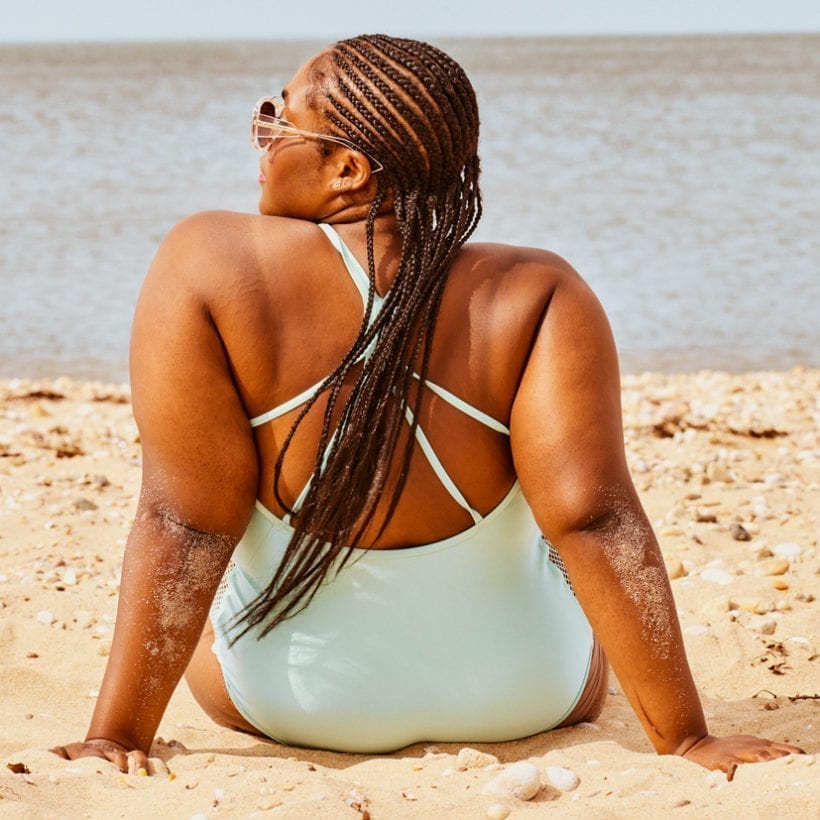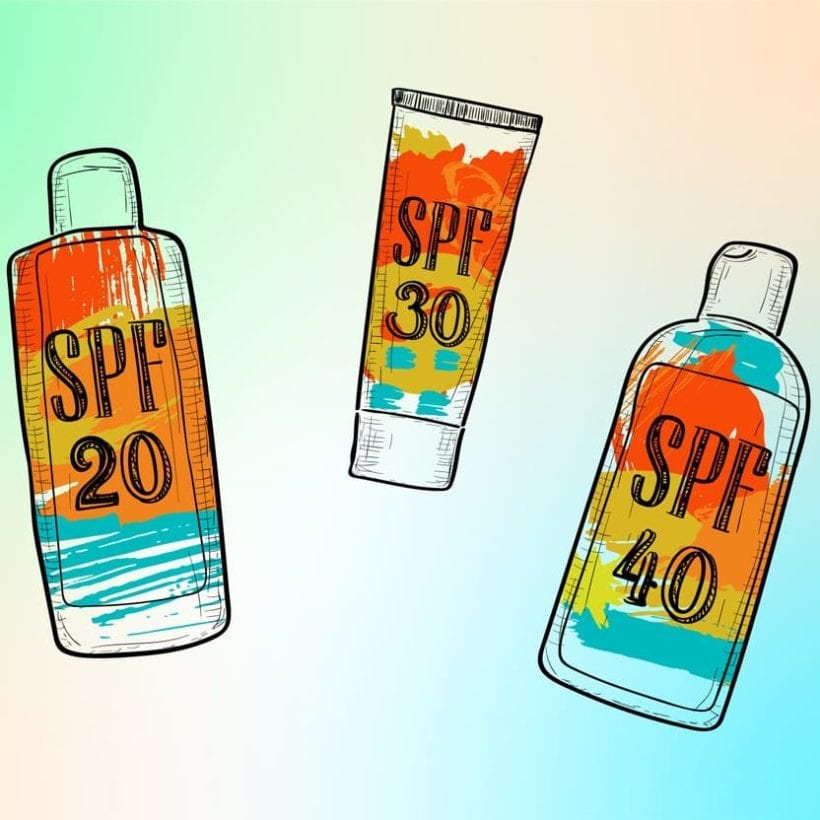While we all know wearing SPF is essential for preventing skin cancer and reducing skin aging, understanding the ins and outs of sunscreen can feel like a minefield. We’re here to put the record straight and help you understand exactly what you need to know about protecting your skin in the sun.
A high factor is the most important thing
The sun’s rays damage the skin in two ways: via UVA and UVB rays. Quick hack to remember this: UVA rays cause aging and UVB rays cause burning (‘A’ for aging, ‘B’ for burning). What most people don’t know is that the SPF factor only refers to the formula’s ability to protect against UVB rays. While this is, of course, important, you must also remember to check the product’s UVA rating too. UVA protection is rated by a 0-5 star system. Make sure to choose a product with either 4 or 5 stars.
You don’t need to wear sun cream in winter

When looking out a grey drizzly sky, it can be tempting to assume you can skip your suncare. However, UVA light is always present, even when the sun isn’t visible. “UVA rays account for about 95% of the rays that reach the earth and can cause cumulative damage such as fine lines, wrinkles, pigmentation and possible skin cancer,” Dr. Catherine Borysiewicz, consultant dermatologist at the Cadogan Clinic, explained. “Come rain, snow or shine, sunscreen is required every day. It’s the cheapest and most effective, scientifically proven anti-aging product on the market and should be part of the everyday skincare regime for everybody,” she recommended.
My makeup provides enough protection
Often base products like foundation, concealer and tinted moisturizer offer sun protection benefits. These multi-tasking products supposedly offer 2-in-1 benefits but often it’s too good to be true. This comes down to the way the product is normally applied. “Let’s take foundation as an example: to achieve the level of SPF on the bottle you would need to apply so much product it would look completely odd and far too heavy. It’s much better to use a separate SPF and that way you have the coverage you need,” aesthetic doctor Dr. Ahmed El Muntasar explained.
Factor 15 provides sufficient protection
It’s often assumed that anything over factor 15 will protect you but alas experts recommend banking on something better. “When it comes to SPF, the higher the factor, the better the protection,” Dr. Borysiewicz said. “I recommend factor 30, however factor 50 is my preference, especially throughout the warmer months or when skiing or in high altitude,” she added.
You don’t need to reapply sun cream throughout the day
It’s one thing remembering to apply sun cream in the morning and another actually remembering to do top-ups throughout the day. Although some sun cream formulas have impressive staying power, you must remember to top up too. “Re-application should happen every 2-3 hours, potentially more if you’ve been swimming or if you’re sweating a lot as not all SPFs are water-resistant and many become less effective if they become wet,” Dr. Muntasar clarified.
Only light skin tones need sun cream

There is a common misconception that people with darker skin tones don’t need to wear as much SPF, but that’s not correct. “All skin tones have to wear SPF and every person should protect their skin against sun damage,” Dr. Muntasar noted. “Skin cancer doesn’t discriminate and any person, of any skin tone, can be affected by it,” he added. Due to the late diagnosis of skin cancer amongst dark-skinned people (it’s harder to detect), the survival rate is significantly lower. One study found the five-year survival rate to be 67% in Black people versus 92% in white people.
Mineral formulas aren’t as effective
Mineral formulas (also known as physical) and chemical formulas do exactly the same job but just in a different way. “A physical formula acts like a mirror — it sits on the surface of the skin and reflects the rays off. With a chemical formula, as the UV rays hit the skin the chemical SPF neutralises them meaning they can’t penetrate deeper into the skin,” Dr. Muntasar explained. It all depends on your skin type. Some sensitive skins may struggle with chemical formulas. However, some dark skins may struggle with the whiteness of physical formula.
You can use the same formula every year
When it comes to body sun creams, if you live in a cold country, chances are you may only dig them out a few times a year for a hot vacation. Don’t be fooled into thinking you can get sufficient protection from last year’s bottle of sun cream though. Once formulas have been opened, they expire and lose their potency. Always check the expiry dates, but bear in mind most don’t last more than a year.
You can use the same formulas on your face and body

“In theory, the same SPF can be used on the face and body,” Dr. Borysiewicz advised. However, with the range of new-gen sun cream formulas designed for the face, you’re better off reaping the benefits of face-specific sun cream (like Sunday Riley Light Hearted). “These multi-tasking products are wide-ranging, with ingredients designed to help address many skin concerns including acne, sun spots, hydrate the skin and reduce oxidative damage to the skin following UV and pollution exposure,” Dr. Borysiewicz added.
You don’t need to use SPF indoors
UVB rays are blocked by the glass so you can’t get burnt inside. However, UVA rays (the rays that age the skin), do penetrate glass. Therefore, if you want to protect your skin from aging, it’s best off applying suncream even if you are inside all day.
We only recommend products we have independently researched, tested, and loved. If you purchase a product found through our links, Sunday Edit may earn an affiliate commission.







